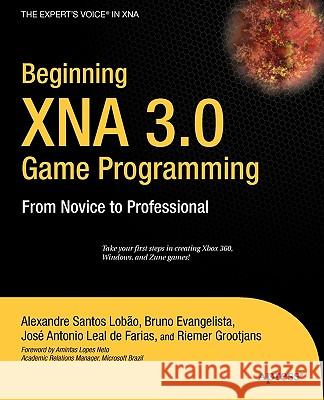Beginning XNA 3.0 Game Programming: From Novice to Professional » książka
Beginning XNA 3.0 Game Programming: From Novice to Professional
ISBN-13: 9781430218173 / Angielski / Miękka / 2009 / 448 str.
It's hard to believe the runaway popularity XNA has achieved in the short period of time since it was released in late 2006. At that time, I got together with a couple friends to check out (with some trepidation, I must confess) whether games really could be written in managed code. We were very excited, and everyone wanted to know if you could get the same benefits you obtain from writing games using managed code as you do when creating standard Windows programs. We knew people in the game programming community were worried about managed code's execution speed, and many people simply didn't believe a "real" game could be created using XNA. As time passed, though, more and more people began to realize the truth: there are a great number of benefits to using managed code, and the performance concerns are exaggerated. You haven't experienced the full potential of the Xbox 360 or, indeed, Windows until you've created your own homegrown games for these innovative systems--and with the XNA Framework, the only limit is your imagination From an educational perspective, due to its simplicity, XNA is also a great choice for anyone who wants to learn or teach the C# programming language. That's not to mention the fact that game development offers an excellent common ground for collaboration between computer science students and their counterparts in other disciplines such music, the arts, design, and so on.











